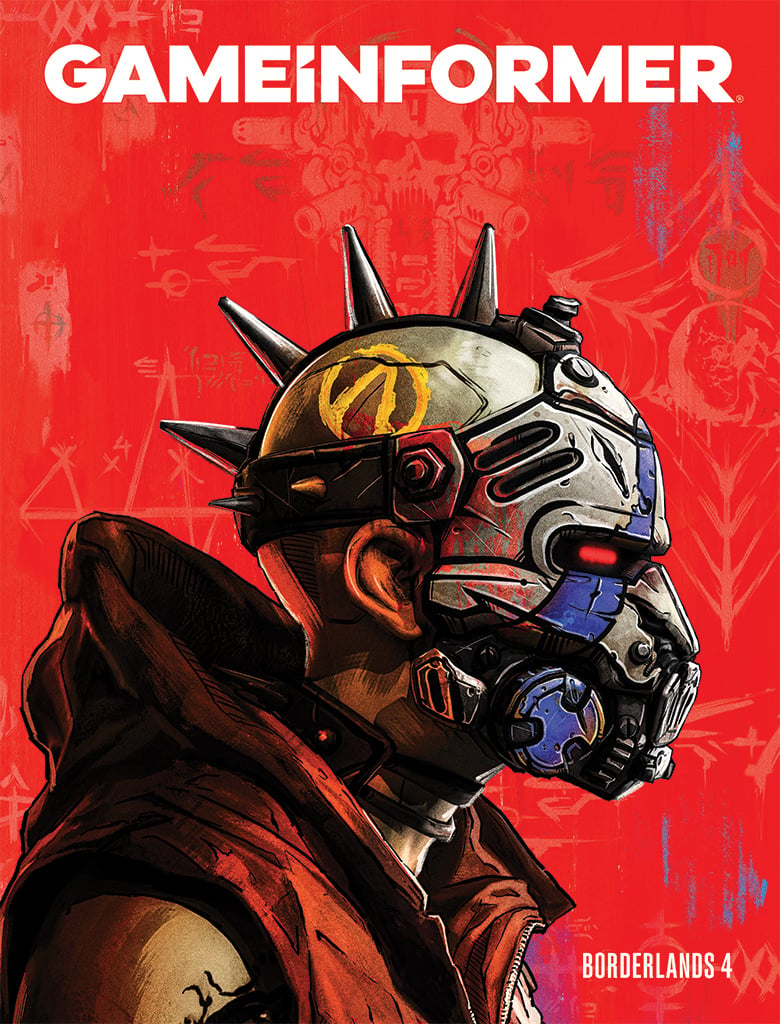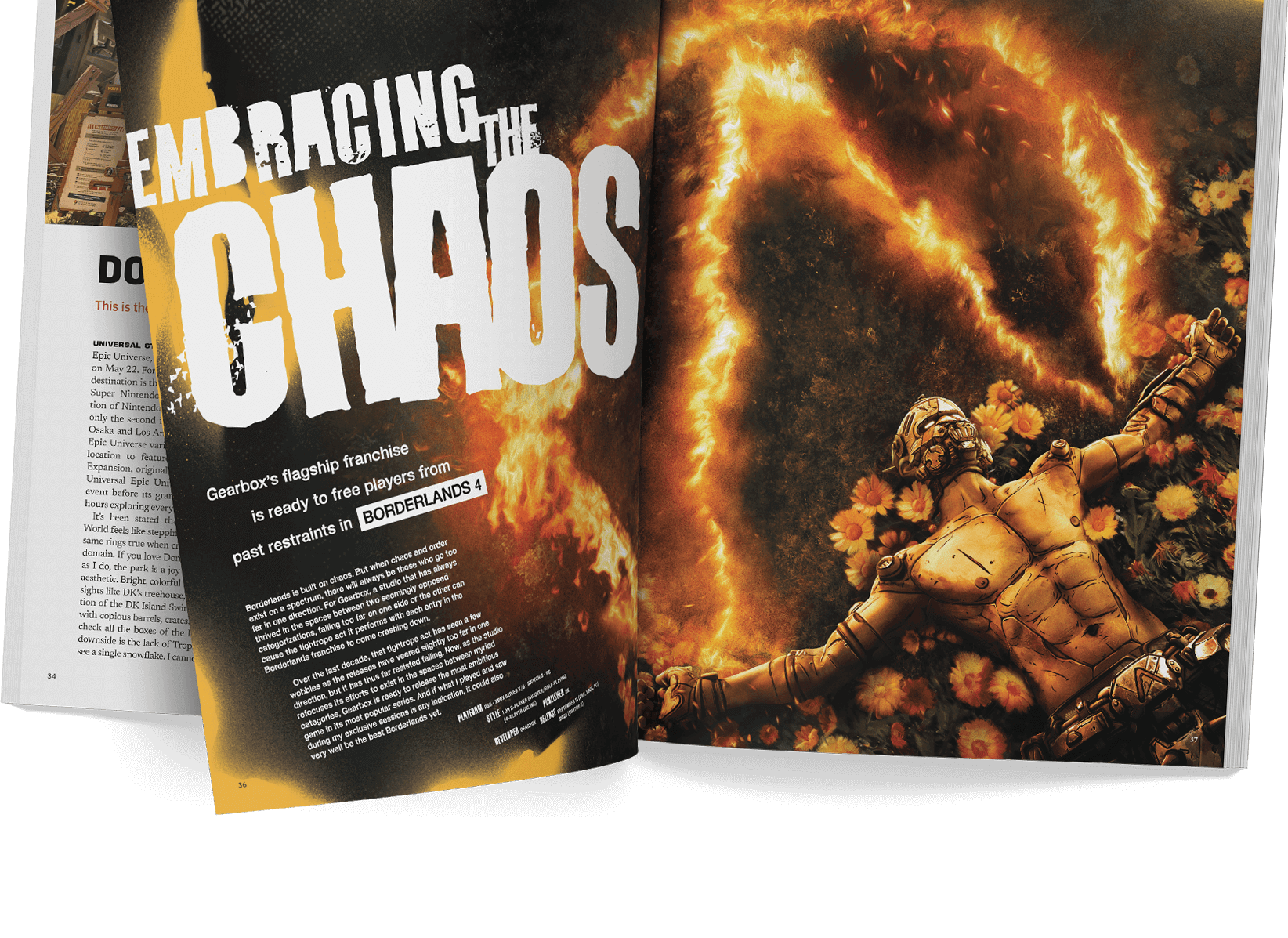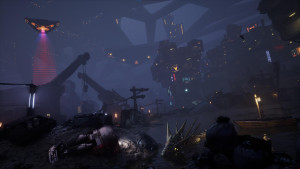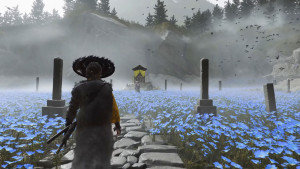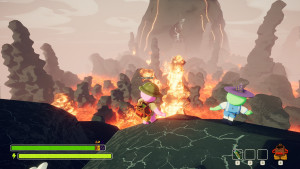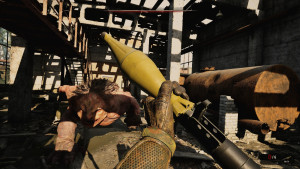Be the first to get Game Informer’s August Issue! Subscribe Now
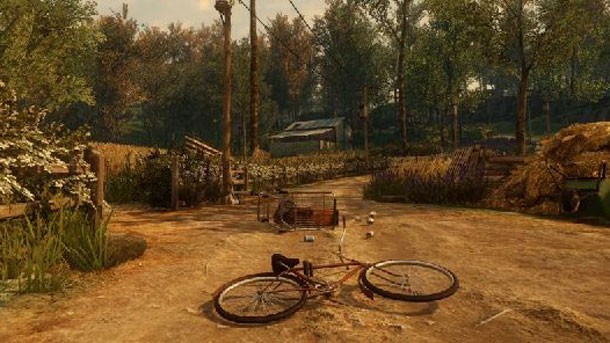
A lot of modern post-apocalyptic fiction revolves around survivors in burnt-out cities fighting marauders and monsters just to persist. But what if the end of world isn't as generically dramatic as all that? This is the question raised by The Chinese Room, developer of Dear Esther and Amnesia: A Machine for Pigs. This story-driven PS4 exclusive invites players to explore beautiful locations where Armageddon's impact isn't immediately evident and discover what happened to the people who lived here.
The demo I saw during E3 2014 takes place in a calm rural settlement on the outskirts of London in the 1980s. The Chinese Room deliberately chose this setting for its apocalypse due to simpler living of the game world's inhabitants, less reliance on technology, and the Cold War tensions of the '80s. The section highlighted during the preview is unlike most post-apocalyptic games, with lush green trees, a lovely pond, and a charming dirt road weaving through a collection of quaint houses. The uninhabited, hauntingly beautiful world of Everyone's Gone to the Rapture looks great running on the PlayStation 4.
Despite the lack of people, the fields and forests of London stir with activity. A breeze moves through the field, causing an expanse of wheat to sway unpredictably with the breeze. Insects and birds go about their business, hinting that Rapture's invitation to the afterlife is a human-only affair.
In addition to the ambient life, a few ethereal entities float through the world. A golden wisp flies around you excitedly, reacting to certain items in the environment. Fuzzy silhouettes of lingering spirits inhabit the world, going about their afterlife business if players care to eavesdrop. For example, two transparent, shapeless blurs lightheartedly discuss their family on a stone bridge. A female voice playfully talks about how much "the kids" love the other's magic tricks, then float off down the road. Players can follow these apparent spirits of the deceased if they wish, or look for new clues about the apocalypse.
Exploring a farmhouse reveals a few interesting clues to both the family and possibly the greater catastrophe at hand. A hastily-loaded hatchback is parked behind the house, a few metallic cylinders visible through the rear window. Opening the back reveals a sizable collection of oxygen tanks – an enigma without knowing the greater context of mankind's extinction or the condition of the family members.
The interior of the house appears to be in perfect condition after entering through the backdoor. Whitewashed walls and a clean living room (complete with the tacky furniture and wood-paneled décor of the time) offer no evidence of a problem. Suddenly an empty wheelchair flashes on the screen in a desolate room. Further exploration reveals the chair in another room next to a sparsely prepared bed. Maybe the oxygen tanks weren't meant to counter some airborne hazard, but rather to help a sick loved one? The kitchen is a mess - a messy heap of boxes packed with spoiled food sits on the table. I start to get the sinking suspicion that the family that lived here didn't make it. These intriguing environments, along with radio transmissions, phone calls, and static-laden TV channels offer other glimpses into the greater story.
The gold wisp, which has been following me the whole time, jolts ahead as the player approaches a lone tree standing high on a hill. The wisp swirls excitedly around the tree, suggesting it holds a great deal of significance. Could this ethereal being be the lasting soul of someone who died in the reckoning? The developer at the controls uses the DualShock 4's tilt function to interact with the swirling gold tendrils, which change form as he twists his hands. Eventually the dev hits a sweet spot that makes the tendrils align and bright light bursts forth.
The presentation ends here, but it's obvious there are many more mysteries to explore in Rapture's world. The Chinese Room has proven it's capable of delivering moody, story-driven experiences with disembodied voiceover telling bits of the tale, but Rapture is something else. Its environmental hints and audio snippets makes it feel more like Gone Home taken to a larger scale. Though, instead of trying to discern what happened to your family, you're deducing the fate of the human race.
